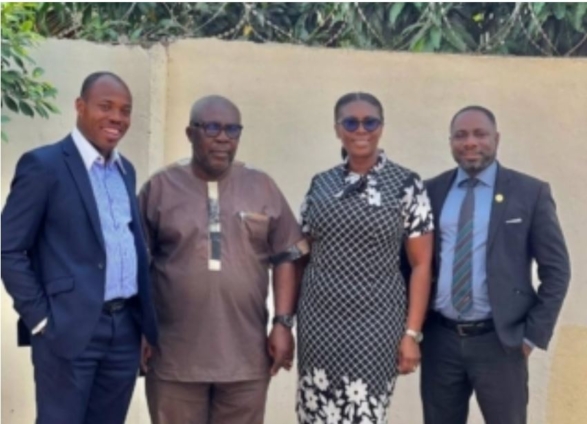Ghana’s microfinance subsector has been encouraged to adopt comprehensive reforms, strengthen corporate governance, and invest in digital transformation to remain viable in today’s fast-changing financial environment.
This call was made at the 14th Annual General Meeting (AGM) of the Ghana Association of Microfinance Companies (GAMC), held on October 30, 2025, under the theme, “Scaling for Impact: Empowering Microfinance Companies to Drive Industry Growth.”
Delivering the keynote address, Mr. David Cracknell, Managing Director of First Principles Consulting, Kenya, cautioned that the survival of the industry depends on innovation and coordinated action among players.
According to him, the financial services landscape is evolving swiftly due to growing competition, increasing digitisation, and the widespread adoption of mobile money services.
He warned that microfinance companies (MFCs) risk fading into irrelevance if they fail to adapt to these shifts.
“Microfinance institutions must rethink their purpose and redesign their operations to meet the demands of a digital economy,” Mr. Cracknell advised.
Reflecting on the 2019 collapse of microfinance institutions, he cited weak governance, insider lending, poor credit management, and undercapitalisation as major causes.
While acknowledging the Bank of Ghana’s introduction of governance and risk management frameworks to address these issues, he noted that many institutions still face difficulties meeting regulatory and operational benchmarks.
“A bad portfolio is our fault,” he emphasised, urging managers to tighten governance structures, increase capital beyond founder contributions, and improve loan recovery systems.
Presenting a roadmap for sector renewal, Mr. Cracknell proposed a five-point strategy for sustainable growth:
- Prioritise sound governance, risk management, and adequate capitalisation.
- Redefine business models to maintain long-term competitiveness.
- Invest in the future through automation, staff training, and capacity building.
- Foster collaboration by developing shared platforms and services.
- Strengthen advocacy efforts to shape regulatory and policy reforms.
He encouraged MFCs to commit to staff development and digital adoption, differentiating between Digital Credit—fully automated, mobile money-based lending—and Digitising Credit—enhancing traditional lending through technology such as credit referencing and loan monitoring.
“Institutions that fail to digitise will inevitably be left behind,” he warned.
Mr. Cracknell also underscored the importance of restoring public confidence in the sector after years of turbulence, advising companies to build strong brands that reflect reliability and professionalism.
He further urged firms to become “investment-ready” by attracting equity investors and affordable financing options, explaining that diversified ownership would enhance institutional resilience.
To reduce operational costs and improve efficiency, he recommended that MFCs adopt shared digital platforms on a pay-as-you-go model, including:
- Banking as a Service (BaaS): shared core banking infrastructure.
- Payments as a Service (PaaS): access to national payment systems.
- Software as a Service (SaaS): digitised agent and loan management tools.
- Infrastructure as a Service (IaaS): shared data centre and cloud resources.
Speaking as Special Guest of Honour, Mr. Louis Amo, Director of the Financial Sector Division at the Ministry of Finance, commended the GAMC for its resilience and role in stabilising Ghana’s financial system.
“You have weathered many challenges and continue to play a crucial role in our financial ecosystem,” he said. “Strong governance, compliance, capacity building, and customer care are the pillars of lasting impact.”
He assured stakeholders of the government’s commitment to working closely with the association to ensure that the microfinance sector remains inclusive, stable, and capable of supporting national growth.
Board Chairperson of GAMC, Mrs. Rebecca Addo, noted that the coming year would bring new regulatory and compliance requirements, including enhanced client verification, data protection certification, and updated cybersecurity standards.
While acknowledging the challenges these may pose, she expressed optimism that with unity, discipline, and a shared sense of purpose, the industry can thrive.
“Together, we can strengthen the financial ecosystem, boost industry credibility, and promote the sustainable growth our sector and country deserve,” she concluded.
ALSO READ:
Pure joy as Adom FM Family Kolor Paaty lights up Legon…
Woman dies again after allegedly rising from death at Gomoa Nyanyano


